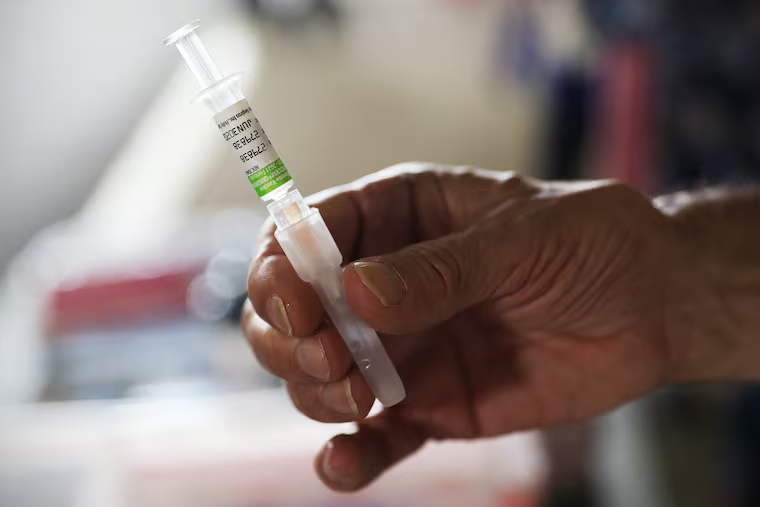Now’s the time to get your flu shots, experts say
Flu is an endemic disease in the United States, meaning cases rise and fall in predictable ways every year. But that doesn't mean it's benign.

Flu season is upon us. Experts say it’s best to get vaccinated now, before the typical rise in flu cases gets underway this fall.
September and October are ideal times to get a flu vaccine, said Aimee Palumbo, a professor at Temple University’s College of Public Health.
“It takes two weeks for the vaccine to take effect as your body has to build up the antibodies, and it should stay protective — you can get it early, and you will still be protected from flu later in the season,” she said.
People should also get a COVID shot along with their annual flu shot, she said; updated COVID vaccines for this winter are now available.
“People tend to underestimate the impact that flu and COVID can have, and COVID is still more severe than the flu,” Palumbo said.
Why is it important to get vaccinated?
Flu is an endemic disease in the United States, meaning cases rise and fall in predictable ways every year. Still, that doesn’t mean it’s benign: About 40,000 people die each year from flu. (COVID killed about 50,000 people last year.)
According to data from the Centers for Disease Control and Prevention, more Americans in recent years have stayed up-to-date on their flu vaccines than COVID vaccines. In Pennsylvania, 51% of adults got their flu vaccines last year, while about 24% got the latest COVID vaccines.
What should we expect from this year’s flu season?
Though flu cases dropped during the first years of the COVID-19 pandemic because of isolation polices taken to reduce the spread of COVID, as lockdowns have lifted, cases have ticked back up.
The CDC has estimated that the number of hospitalizations at the peak of this year’s “sick season” — the winter uptick in cases of flu, COVID, and respiratory syncytial virus, or RSV — will likely be similar to or lower than last year’s counts.
How else can I protect myself and others from the flu?
Palumbo said it’s also key for anyone who does get sick this season to stay home to avoid spreading respiratory viruses to others.
“We see a lot of mortality from the flu and COVID. But outside those extreme outcomes, getting the flu and getting COVID is terrible — you miss work, you feel bad,” she said.
Getting vaccinated can help decrease the severity of your illness even if you fall sick, she added: “You have less symptoms, you’ll recover faster, and you’re less likely to spread it to other people.”
Information on how and where to get COVID and flu vaccines in the city can be found at the Philadelphia Health Department’s vaccine website.